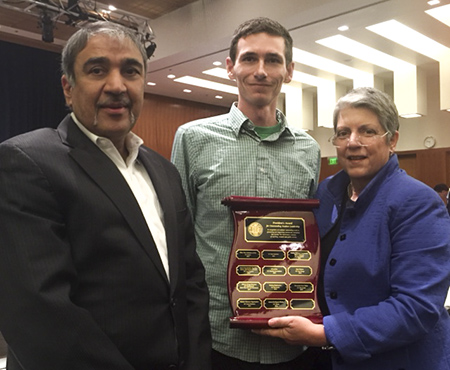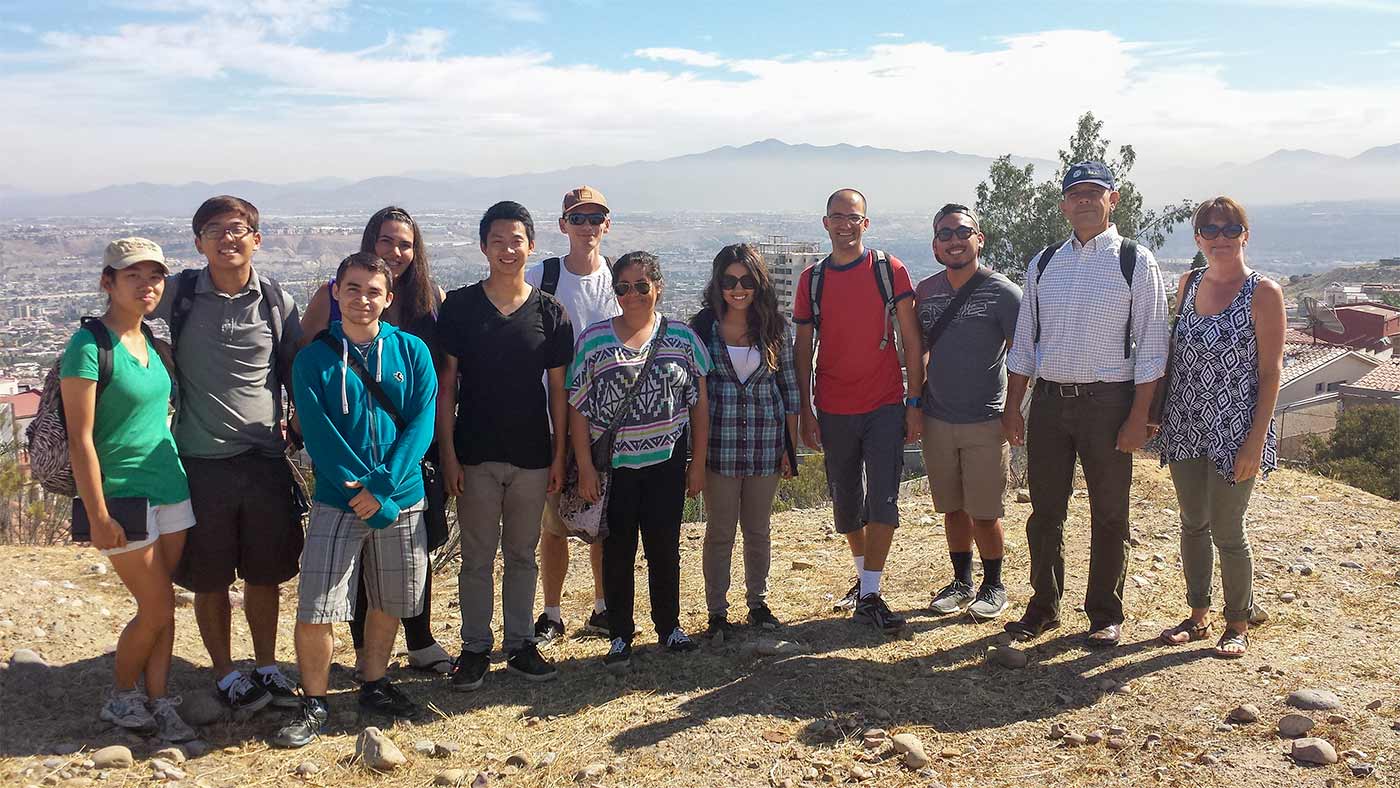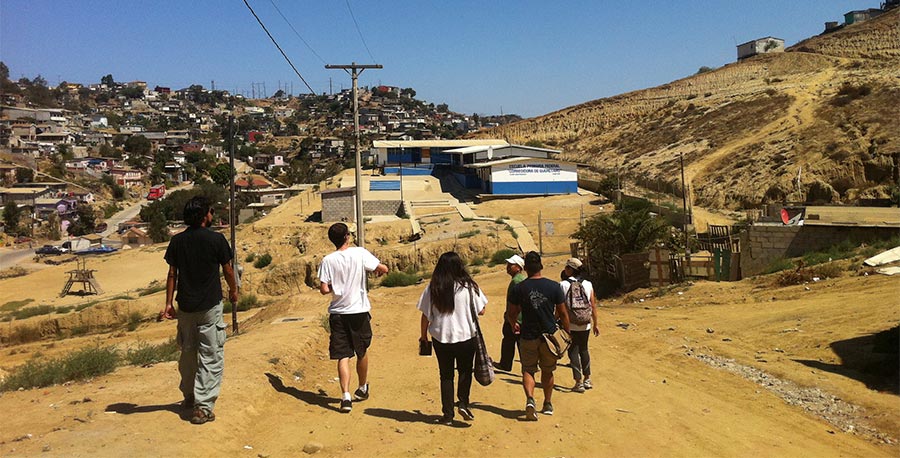
By:
- Kristin Luciani
Published Date
By:
- Kristin Luciani
Share This:
UC San Diego Graduate Student Receives UC President’s Award for Outstanding Student Leadership

Chancellor Pradeep K. Khosla, Kyle Haines and President Janet Napolitano
Kyle Haines’ work as a UC San Diego graduate student in political science has taken him across academic and national borders. With his focus on environmental political theory, he has forged cross-disciplinary collaborations on campus and with institutions in Mexico to address ecological challenges in the region. In recognition of his work, University of California President Janet Napolitano recently honored Haines with the President’s Award for Outstanding Student Leadership.
“We are pleased that Kyle has been selected for this prestigious award,” said Chancellor Pradeep K. Khosla. “His work strongly aligns with the priorities of UC San Diego and the University of California to further sustainability and build the university’s engagement with Mexico.”
Added Graduate Division Dean Kim E. Barrett: “Kyle exemplifies the many talented Ph.D. students on our campus who are pushing disciplinary boundaries to address the most pressing societal problems. His efforts are enhancing the graduate student experience on our campus in ways that will have a lasting impact.”
For the past two years, Haines has served as one of the leading conveners of a cross-campus and cross-border research forum, the Interdisciplinary Forum on Environmental Research (IFER), sponsored by the UC San Diego Center for the Humanities and the Center for Marine Biodiversity and Conservation at Scripps Institution of Oceanography. Biweekly, the forum draws scientists from Scripps Oceanography, social scientists and humanists from the UC San Diego campus and environmental scholars from the Colegio de la Frontera del Norte in Tijuana to share projects of mutual interest and to engage in lively debates.

Haines' internship group for the Blum Cross-Border Initiative in the Tijuana River Valley
As a student-led discussion platform, IFER offers a unique opportunity for graduate students and faculty from across disciplines to engage and collaborate. The forum also serves to tie UC San Diego research into international engagement and technological transfer to northern Mexico.
“To solve the immense environmental challenges we face, researchers must work across disciplinary divides. Kyle has fostered a model program of how to do this,” said Stefan Tanaka, director of the Center for the Humanities. “Scientists have part of the answer, but so do humanists who can help us to understand the histories and cultural influences of environmental degradation. Kyle is the sort of scholar who successfully bridges this divide.”
Haines is interested in bridging community divides as well. Putting academic discussion into practice, he works with educators, researchers and community members from San Diego and Tijuana to address environmental issues at the border. He serves as a graduate field coordinator and instructor for the Blum Cross-Border Initiative. He is also involved with Alter Terra, a nonprofit that addresses pollution and habitat preservation in Tijuana’s Los Laureles Canyon through community engagement, sustainable planning and scientific research.

Laureles Canyon, Tijuana
“These initiatives are attempting to close a fundamental gap between two communities which share a bioregion, but often perceive themselves as distant and separate,” explained Haines.
In his own research at UC San Diego, Haines studies the potential social and ecological effects associated with the decentralization of political power. The San Diego-Tijuana region—with its permeable but real border—provides a testing ground for theories about local ecological governance and cross-border cooperation on environmental issues. He has also studied these “bioregional” dynamics in indigenous communities in Oaxaca, Mexico and Bolivia.
Haines plans to earn his doctorate next year and has already begun mentoring the next generation of students to continue to grow the cross-disciplinary, cross-border collaborations he has worked to build.
“I hope that by creating opportunities for students to engage all parts of their local region, we will encourage a generation of problem-solving, motivated and rigorously trained specialists,” he said. “Individuals who have learned through their continuing commitment to crossing disciplinary and national boundaries that the problems of their communities are often shared and always connected.”
Share This:
You May Also Like
Stay in the Know
Keep up with all the latest from UC San Diego. Subscribe to the newsletter today.


